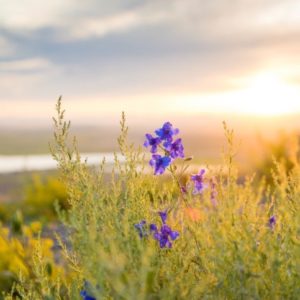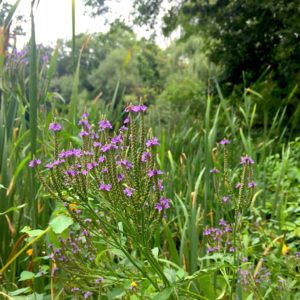Thoughts on Decolonizing, or, How to be a Good Houseguest

I’m really excited about your story! In reading what you wrote, here are some thoughts that started bouncing around in my head. I’m not sure if they’re what you’re looking for but in case they might be useful or serve as a jumping-off point, and since you asked, here they are:
We’re here, so we have responsibility about how we’re here. White people coming to this land didn’t have to go down the way it did – colonizing wasn’t the only answer. We could have asked nicely, for example, and then been good neighbors. We could have assimilated instead of imposed. Since i can’t really leave (i mean, i could leave, but where would i go? I don’t have citizenship anywhere else and that’s not easy to get), my practical day to day thinking is, try to be a good “houseguest” and a good neighbor. Try to live the way it could have been. To me it seems like that’s kind of the most basic beginning thing: instead of thinking that i’m somehow entitled to whatever, (or not thinking at all!), i can think and behave like a guest. And i can respect the land i’m on, deeply. I can tend plants and even in my very urban neighborhood on property that i’m just renting from the landlord, i can use my own resources to try to improve the land i have access to. I can fight for conservation of land, protection of waterways, protection of other living creatures, and i can fight for the rights of the people who were here before, and for the rights of all oppressed people. I feel like, if i’m on land that doesn’t belong to me (as if land could belong to anyone!), that’s the very least i can do.
Anyway, from there, i think outward – the same thoughts, but expanded. Sometimes getting in the streets is the best way for me to take action, and other times just having a quiet conversation is. Today i told my parents, who live in a homogenous suburb and were visiting me in Dorchester, and were feeling impatient, that it’s ok to wait even though we were (inadvertently) cut in line, because we’re white and the other person was not. We don’t need to assert that we were there first, we can just wait. We can use it as an opportunity to remember our privilege, to remember how many times in our lives we got things because we are white living in a system built for us, and we can wait patiently, not because it will necessarily even be noticed by the person who didn’t realize they cut ahead of us (and it doesn’t need to be), but because it is an important exercise that we need to practice in order to change everything about how we think about what we “deserve”. We can wait because it is kind, and all other people are deserving of the kindness we expect for ourselves. Sometimes it’s as small as that.
Or as saying to someone, i believe you.
This guides a lot of what i do, combined with the concept that an alternative to appropriation is collaboration – that guides a lot of my action, too. Rising Appalachia is a band we really love, and they’ve gone all over the world working with music of lots of different cultures, especially West Afrika and Meso and South America. But their work isn’t appropriated, it’s collaborated. Their band is a range of different cultures and experiences, people working together to build something beautiful. I’ve lived a lot of places in the world, and in my experience, people like to collaborate, and they particularly like to share their culture with someone who appreciates it and honors it.
So i think that way about practicing herbalism. It’s a huge responsibility and also an honor to talk to people about their bodies and their experiences. If i show up with nothing, that’s not honor. If i show up believing i know what’s right for them and they should just do what i say, that’s dishonor. But if i show up willing to listen and validate and collaborate, and with tools and skills that can make me a helpful ally, recognizing that the person i’m talking to is the expert on their own body and experiences, then i can build something restorative. It takes a lot of time and effort to learn skills to be helpful, and not everyone has the privilege of being able to set aside time to do that learning – so this is a way i can use my privilege for others. I had a good job that subsidized my learning to be an herbalist and building my practice, and i got that job because of a thousand points of privilege throughout my life. So i can use those skills now for others. I used to say to my daughter when she was young, “if you clear your own dishes, i won’t have to. It’s very helpful!” So i think in terms of how i can use what i have to be helpful.
The other part of that is to just outright name what’s going on: i’m not a doctor and i’m not taking responsibility for your health because i refuse to take from you something that is your right. In the state of Massachusetts, the legal definition of the practice of medicine includes that a medical provider is taking responsibility for another’s health, or encouraging another to be reliant on their knowledge: i don’t practice medicine, and also i refuse to encourage someone to be reliant on me. I don’t want to be in control. Having that discussion with every person i work with is slow going, but it does begin to dismantle some unhealthy things about our system. It would be nicer to be able to do it faster, but i’m just one person, and besides, fast transition is often chaotic and catastrophic, and there are lots of vulnerable people depending on the system we have right now, crappy as it is. And fast transition is not nuanced, and the reality is, there are parts of the conventional medical system that are really important and should survive that transition. Speed is satisfying but it doesn’t always serve us. (and also we need to solve these problems immediately. yesterday.) So instead i do it one client and one student and one podcast at a time. I want to use plain speech even though i know the big fancy medical words for things, because if i speak about things in regular language, that’s more accessible and less anxious-making than medical-speak. It’s an invitation to collaborate. I always ask people what they WANT to do, what’s most important to them, where they want to start.
I guess this is all little stuff, but anyway, these are the things i think about for guidance in how to navigate what i do. And i think that being attentive to how we think and work in little – or maybe i mean quiet – ways will ensure that we take larger, more overt actions, too. I guess maybe one last thing to say is, our school doesn’t offer general scholarships, but we do offer some specific ones, to Single Moms of Color, to people working in Palestine and Israel for a just peace, to people working to provide services to refugees and those living through systemic oppression, to Native Americans. I’m really clear that i can’t teach their traditions, but i can teach what i know, and from there, the plants can help them regain what was lost and taken from them. I think that in general, this is a way we can help: so much has been taken, and much of it we can’t actually give back. Even if we gave back the land and removed the concrete and everything else, the skills are gone because we removed those too. Justice will come by collaboration to build a truly just and good future. So i try to turn myself into the best tool for collaboration and future building as possible.
Anyway. I don’t know if any of that is really what you had in mind, but in terms of “how do we get through a day as herbalists in this crappy system that we are living in, and how do we do the most good where we are”, that’s what i’ve got. I hope it might be helpful, at least some part!
And yes, i’m happy to converse about this! Feel free to reply with any thoughts or questions. We work 7 days a week, and usually until pretty late at night, so to be honest, my inbox is never very punctual. Sometimes i try to apologize for taking a long time to reply to people but then i realize that i keep looking for excuses as to why this particular email is late but the truth is, most of the time, all of the emails are late. So, if you write something, and it takes me a while to get a response out, please don’t take it personally!
I’m so glad that you wrote! 🙂
warmly,
katja


Join our newsletter for more herby goodness!
Get our newsletter delivered right to your inbox. You'll be first to hear about free mini-courses, podcast episodes, and other goodies about holistic herbalism.
